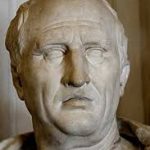I have been assisting Papio Creek Church in developing a methodological framework for “doing theology and church”, which for lack of better terminology we are calling “The Story of God”.
I had the wonderful privilege of participating in this Sunday’s worship experience by delivering the message from Exodus 3 titled “I AM”.
Below is the audio from that sermon:
I have also included the sermon notes below as well (some of which are not in the audio).
I AM
(Exodus 3)
Why did God appear as a burning bush?
Even though this is the first question we tend to ask, it is not the first question we should begin with. Instead, the first question is “Why did God appear?” Theologians refer to this as God’s self-revelation. This is significant because God had not appeared in hundreds of years to his people. I think many of us assume that every time we seek a reference in the OT to God communicating something that it is in some tangible way. In fact, I would argue that his actual appearance was rare. Therefore, it is understandable why Moses is so puzzled by the whole experience. And as you will see, it’s about to become more complicated. But first, let’s address this non-burning, burning bush issue. I will be honest; I did find it strange at first that God used this form of self-expression to communicate to Moses.
However strange it seems this is apparently, a common symbol of God’s self-expression. In fact, as you will see when we get to that point in the story, God will appear in a similar form while delivering the Ten Commandments. In all of these modes of self-expression we see a commonality among all of them:
God’s Voice
A voice with such presence about it that it causes men to fall on their faces. A voice with such power that the universe did not wait for the faintest echo before it began to form. The voice of God is irresistible to Moses. God’s voice provokes both terror as well as beauty.
Take off your shoes; for the voice of God is Holy
The voice of God is Holy!
I think this concept is difficult for many of us to understand as western protestant Christians. This leads me to ask a tough question of myself: what is the difference between the experience Moses had and our own; right now, in this place?
It does strike me, that in our culture we seem to lack the reverence necessary to stand before a holy God. Perhaps, we don’t really believe we are in the presence of a Holy God.
Perhaps, we are not.
Wake Up People!
Behold you are in the presence of God. God is here…Right now, in this very place and at this very moment.
The text also says: “…he covered his face”.
Yes, I imagine that being in the presence of God will do that to you; for being in the presence of God exposes you for who you are. Being in the presence of God requires you to ask something of yourself:
Who am I, as I stand here in the presence of a Holy God?
I am a sinner.
You are God’s Messenger
Despite the fact that you must hide your face in the presence of the Lord.
Despite the fact that you are a sinner…and people let me remind you that you will always be a sinner.
Despite this very fact, God still wants to use you to rescue people from the slavery of their addictions, their ignorance, and their poverty.
The Name of God
The last part of this passage is probably one of the most significant parts in the entire OT because it deals with the nature and being of God.
Let me ask you a question:
Why do we have names?
Names are part of a larger linguistic framework which helps to identify particular forms that exist around us such as chairs, buildings, countries, and people.
We must keep in mind a few things about our context in order to understand why this is important.
The world of Moses is pantheistic. That is, religions within that culture had multiple gods that they served. Also, of the information that we have read up to this point we know that it is entirely based on recollection. In other words, the writer (presumably Moses) is writing in hindsight, which gives him the privilege of referring to God even before God has actually referred to himself.
Up to this point the traditions that have been passed down from generation to generation are that the Hebrews serve the God of their forefathers (Abraham, Isaac and Jacob). It had been the case that God was referred to by the act that he performed. The one who rescues his people, etc.
But now, Moses ask for a name. “ Who do I tell them is sending me ?“ God’s response is elegant, beautiful and intriguing? He says:
Ehyeh-Asher-Ehyeh (“I am that I am” or “I will be what I will be”)
In other words, God is what Moses needs him to be at that moment, and that God will be what Moses will need him to be in the future. God is the very definition of being.
The lord concludes by answering the question Moses proposed:
Tell them my name is Yahweh !
Let me conclude with this passage from Judges about the name of God:
~ Judges 13:6-7




















What do you think?
You must be logged in to post a comment.